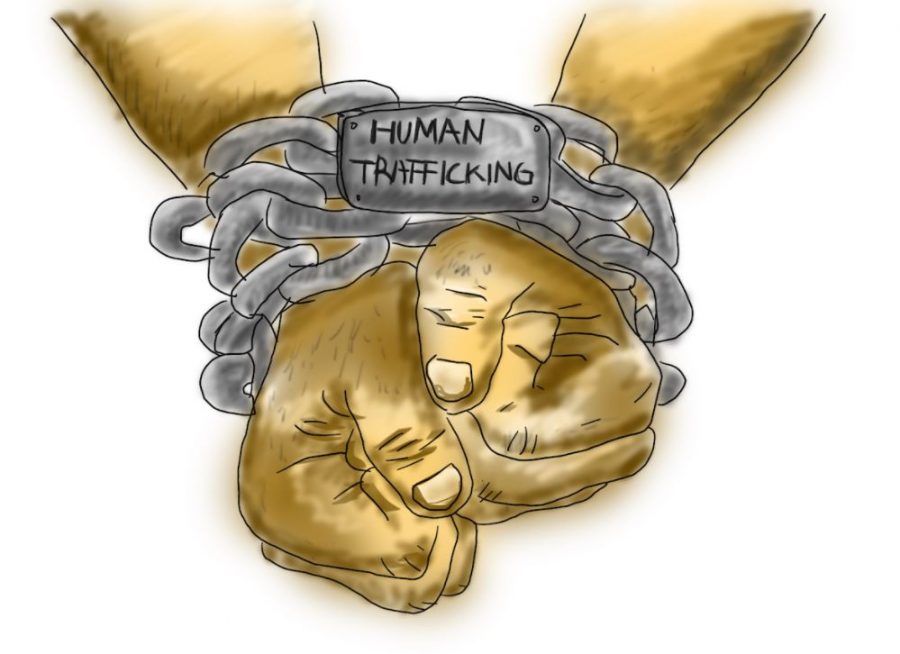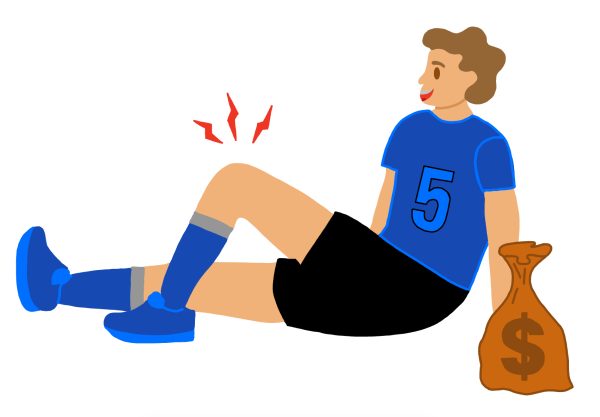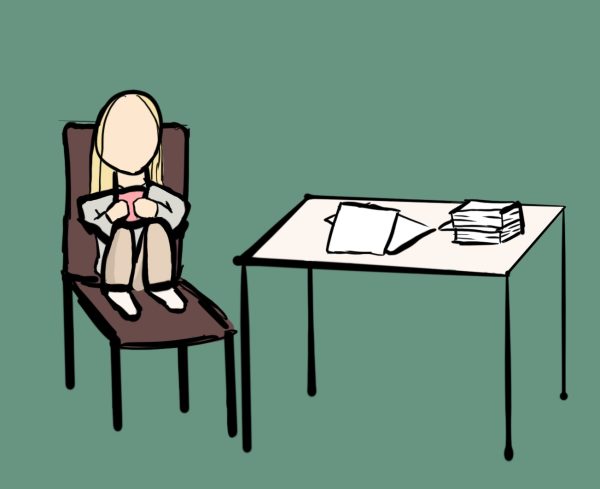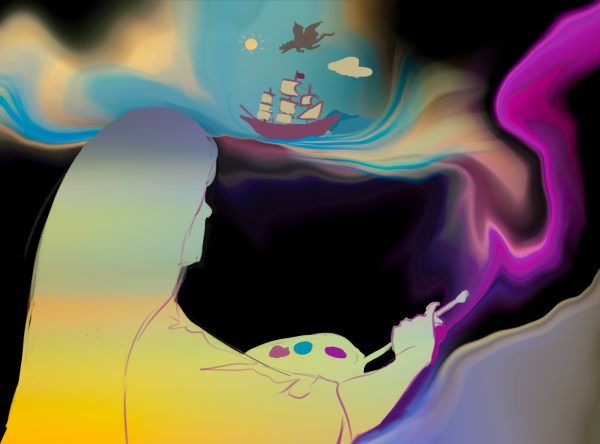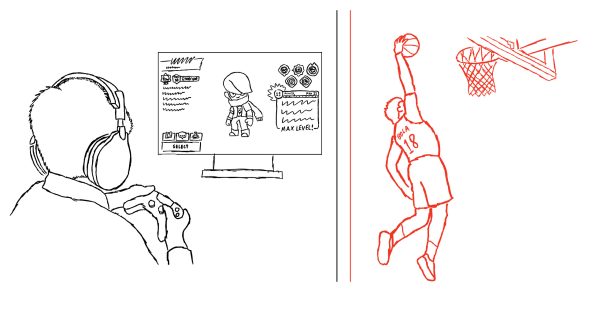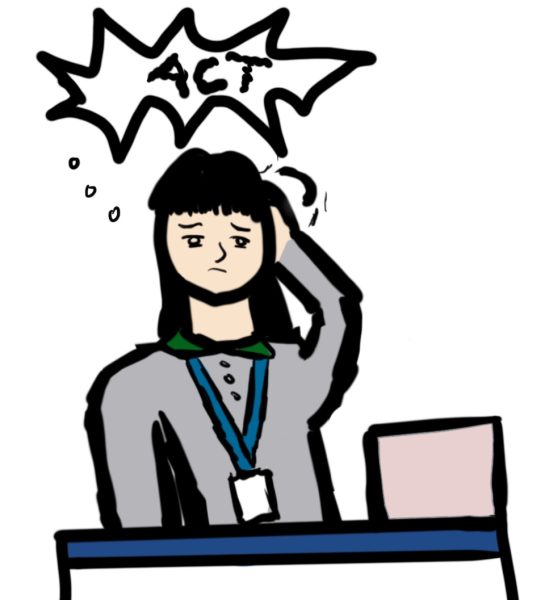Students urge action regarding plight of trafficking victims
Art by Jimin Yu
While slavery was abolished in the United States in 1856, today there are more slaves worldwide than ever before. Between 14,500 and 17,500 people are trafficked into the U.S. each year, contributing to the 20.9 million slaves worldwide.
Human trafficking is one of the fastest growing criminal enterprises, yet little has been done to protect victims and prosecute traffickers. More legislation is needed to protect victims from facing prosecution for acts that they were forced into. The prayer service and workshop led by the Viatorian Youth Congress (VYC) and Justice League on February 9th helped to bring attention to the subject while raising money to help victims return to their lives. Students participated in a prayer service and made bracelets which were sold at lunch periods to raise over $300 for survivors who are helped to return to their lives by the Metropolitan Family Services. More events are needed to bring recognition to the subject and create change.
Modern-day slavery affects people of all ethnicities, genders and ages. An estimated 27 million adults and 13 million children around the world are victims of this crime. Eighty percent of those trafficked are under the age of 24, with some victims being as young as 6 years old. The majority of victims are women and children, but men are also targeted to work in fields or complete hard physical labor. Boys are also trafficked to serve in armed conflicts across the world, with UNICEF estimating that 300,000 children younger than 18 are currently being trafficked for this reason.
“[Traffickers] focus on people who come into the country and are undocumented, they also focus on people who have some learning disabilities, and they focus on the young,” said Mrs. Abrahamian, one of the organizers of the VYC and Justice League event.
Human trafficking generally refers to forced slavery or sex trafficking, but people can also be targeted for human organ harvesting.
Often times economic or environmental disasters can lead to trafficking. Natural disasters, such as tornadoes and tsunamis leave millions of people homeless and desperate, a combination which can contribute to them being trafficked.
The practice of human trafficking leads the deaths of an estimated 30,000 victims each year. The criminal process can lead to death through practices of abuse, transfer of disease without any medical attention, torture, and neglect.
A simple response to this issue would be to prosecute those who victimize people all around the world. Often times, though, when sex trafficking is reported to local legislation, the victim is arrested for practicing prostitution and the trafficker is able to walk free by buying his way out of trouble.
Legislation must be put into place around the world to prevent victims from being blamed for human trafficking. The first piece of legislation created to protect victims in the United States was The Trafficking Victims Protection Act(TVPA) of 2000, which provides a three pronged approach that includes prevention, protection, and prosecution. While this act has helped facilitate change in the United States, other countries around the world have failed to create legislation. Only 80 countries have laws in place to combat human trafficking.
An issue as widespread as human trafficking may seem impossible to reverse, but everyday people can make a difference in the lives of victims.
One of the easiest ways to help victims is to learn about the indicators of human trafficking. Human trafficking awareness training can help workers in places like airports, one of the most common locations of human trafficking, to identify victims and rescue them.
“Be aware and learn as much as you can about human trafficking, that’s why we wanted awareness. We wanted you to see what goes on,” said Mrs. Abrahamian.
Another simple approach to fighting human trafficking is to be an informed consumer. The Department of Labor’s List of Goods Produced by Child Labor or Forced Labor can help consumers to discover ways they might be contributing to human trafficking and inspire them to only purchase items created through reputable labor. Encouraging companies to work with reputable suppliers and factories can prevent further trafficking and prompt investigations.
Often times, issues like human trafficking are forgotten in the grand scheme of life, but human trafficking affects people everywhere. We need to bring attention to the issue and help those affected by it to restart their lives and find justice for the crimes committed against them. Events like the VYC and Justice League workshop and prayer service can lead to significant change.
Your donation will support the student journalists of Saint Viator High School. Your contribution will allow us to purchase equipment and cover our annual website hosting costs.



